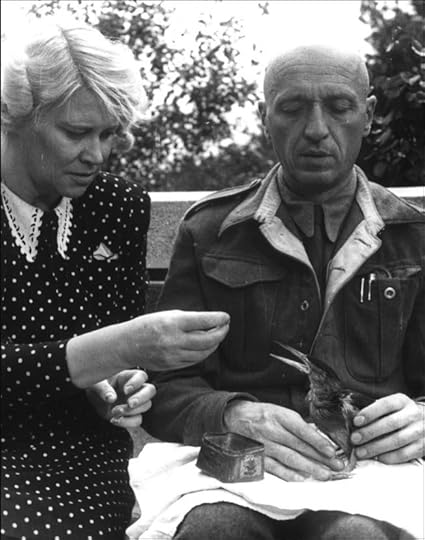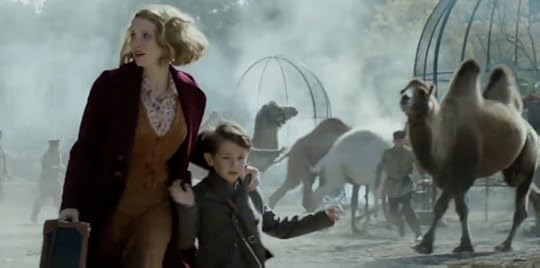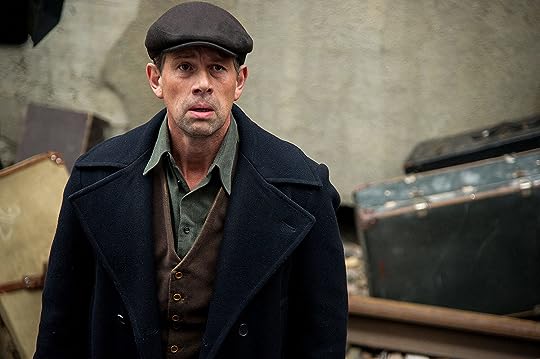What do you think?
Rate this book


368 pages, Paperback
First published September 7, 2007
...one puzzle of daily life at the villa was this: How do you retain a spirit of affection and humor in a crazed, homicidal, unpredictable society?On September 1, 1939, Nazi Germany, emboldened by the recently-signed Molotov-Ribbentrop pact with Stalin’s Soviet Union, invaded Poland. Warsaw was pummeled, then occupied. With the Nazis’ bizarre fixation on racial purity (which extended to animals) and hatred for Jews, it became an existential crisis merely to be Jewish in the city. Amid the carnage and daily horror, heroes emerged. One of them was Antonina Żabiński.

“Her confidence could disarm even the most hostile,” he told an anonymous reporter, adding that her strength stemmed from her love of animals. “It wasn’t just that she identified with them,” he explained, “but from time to time she seemed to shed her own human traits and become a panther or a hyena. Then, able to adopt their fighting instinct, she arose as a fearless defender of her kind.”It was frequently the case that this or that animal required special care, patching up from an injury, recuperation from an illness. Antonina and Jan would take them into their zoo-residence, a villa, creating a very Doctor-Doolittle-like atmosphere.


One spring day, Jan brought home [from a pig farm that had been set up at the zoo] a newborn piglet whose mother was just butchered, thinking that [their son] Rys might like it as a pet…they named him Morys, and at two and a half weeks, Morys looked like “piglet from Winnie-the-Pooh…very clean, pink and smooth…Morys lived in the so-called attic of the villa, really a long narrow closet that shared a terrace with the upstairs bedrooms, and each morning Antonina found him waiting outside Rys’s bedroom door. When she opened it, Morys “ran into his room, oinking, and started jostling Rys’s hand or foot until Rys woke, stretched out a hand, and scratched Morys’s back. Then the pig arched, catlike, until he looked like the letter C, and grunted with great contentment,’ uttering a quiet noise between a snort and a creaking door.There are plenty of other four-footed characters here, including a particularly cunning, carnivorous rabbit who learned to kiss people.

In 1940 when Jews were ordered into the Ghetto, [a progressive orphanage, started by a well known author and pediatrician Henryk Goldszmit (pen name Janusz Korczak)] moved to an abandoned businessmen’s club in the “district of the damned,” as he described it in a diary written on blue rice paper that he filled with details of daily life in the orphanage, imaginative forays, philosophical contemplations, and soul-searching. It’s the reliquary of an impossible predicament, revealing how a spiritual and moral man struggled to shield innocent children from the atrocities of the adult world during one of history’s darkest times.” Reportedly shy and awkward with adults, he created an ideal democracy with the orphans, who called him “Pan Doctor.” There, with wit, imagination, and self-deprecating humor, he devoted himself to a “children’s republic” complete with its own parliament, newspaper and court system. Instead of punching one another, children learned to yell “I’ll sue you!”One might see Poland in a different light having read this. There was much more heroism and self-sacrifice than one might have realized previously. The effort to save those targeted by the Nazis involved far more than a few heroic individuals. It required the knowing cooperation of tens of thousands of individuals who knew that they would be killed if discovered.
I don't understand all the fuss. If any creature is in danger, you save it, human or animal.Words to live by.